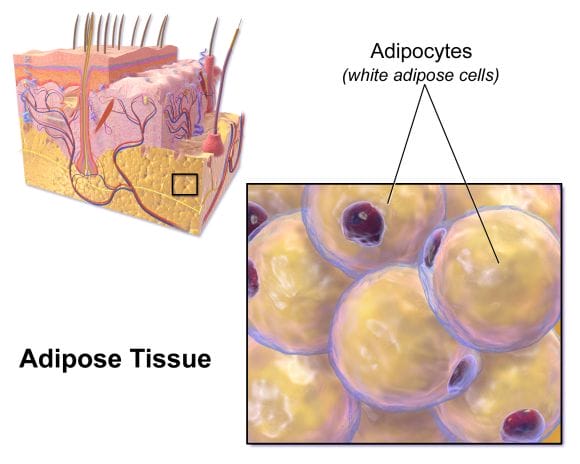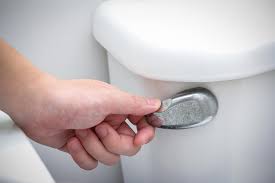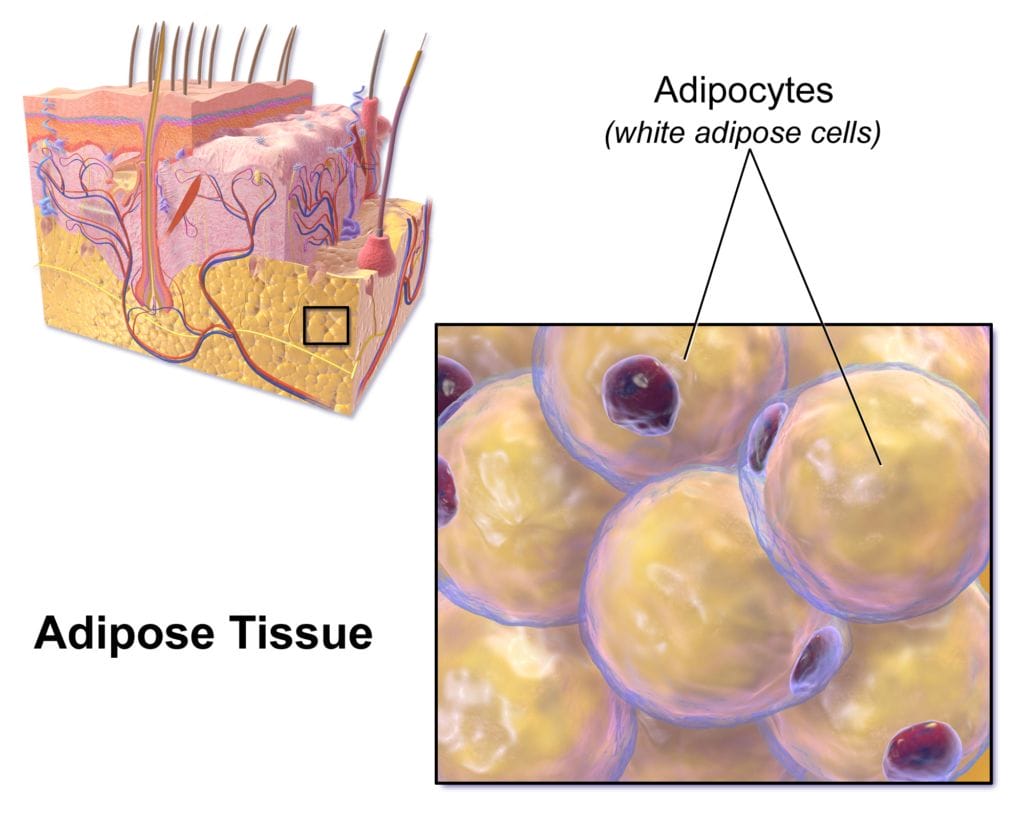I had a client talk to me last week about something they had seen online about “Fat Burning” and how they had been told it can be “flushed” out with the right teas and other potions.
Never in all of the science classes I’ve taken and in all of the years I’ve been studying human metabolism and health, have I ever heard of a ‘flush.’ Turns out, the person who posted the picture -a ‘health coach’ – said that’s what happens to fat cells when we lose weight.
Of course, she was selling a product.
Another person on the internet, floated the claim that the ‘Flush’ happens when we lose weight.
This person said that after the fat cells release fat, they temporarily fill with water, making you feel ‘squishy.’ She said that this water retention occurs because ‘the fat cells are hoping to fill up again with fat.’
Apparently, this person doesn’t science.
Because despite her compelling description, she’s absolutely wrong:
Our fat cells don’t fill with water after they release triglycerides during weight loss. They just sort of…wait there, like when the train takes half an hour reversing into Killarney station and it’s Baltic outside!
But what DOES happen to fat when we lose weight?
Where does the it go?
And maybe there isn’t a ‘Flush,’ but do fat cells disappear or leave the body when they’re empty?
All very good questions, and all about to be answered in this week’s article.
Warning: People who use words like “Flush” and “Burn” about the complex human metabolic process should be ignored. But you knew that already.

What are fat cells?
Contrary to popular belief, we aren’t born with all of our fat cells. We accumulate them – at least what’s determined to be our baseline number – until well into our teens.
Most of the fat in our bodies is what we refer to as white fat, or WAT (white adipose tissue). White fat stores triglycerides for energy, cushions our organs, keeps us warm, and produces hormones.
When we eat fat, it gets broken down and metabolised by the liver into triglycerides. These are stored in the fat cells, liver, and to a small extent, in muscle. When your body needs energy, it releases the triglycerides into the bloodstream in a process called lipolysis.

The body tries to maintain a balance of ‘lipid turnover,’ which is the name given for the process of storing and removing triglycerides in fat cells for energy. Of course, if you go into calorie deficit, this balance tips, and you lose weight.
Recent research measuring lipid turnover rates showed that lipid removal slows as we age – basically, our cells continue to take up fat, without losing as much of it. That may make it harder to lose weight as we get older.
If we eat too much of any macronutrient, it’s converted into fat and stored in fat cells. Out of fat, carbs, and protein, fat is the easiest for the fat cells to hoard, because it’s already in the correct form.
But that doesn’t mean that carbs and protein can’t find their way into fat cells.
It’s not as easy for the body to do that, but yes: if you eat too much protein, it’s eventually going to be stored as fat.
When the fat cells you already have fill up and can’t hold any more fat, new fat cells can grow.
It’s also hugely important to note at this point: that fat cells, like any other cells in our bodies, don’t turn into other cells. For all of those people who swear that not exercising for a long time will turn your muscle into fat, that’s never going to happen.
Fat cells. Muscle cells. Different things.
When fat cells die, they very quickly get replaced by new ones. That’s because the body likes homeostasis, otherwise known as ‘keeping things the way they are.’
In other words, our fat cells don’t go away. Ever.
Not unless they’re surgically removed via liposuction, or another procedure.
So…What happens to fat when we lose weight?
Let’s clarify something right off the bat. We lose fat the same way we gain it: in fractions of ounces at a time, not by pounds. Just like you won’t wake up the morning after a huge meal with 1kg of new fat gain, you won’t drop kgs of fat at a time.
Weight loss can be quick, generally when you have a lot of weight to lose – but for most of us, true fat loss (versus water) is an incremental process.
When we lose fat, we literally breathe it out. The fat in our bodies is converted to water and carbon dioxide, and expelled by the lungs and in our urine.
As the fat leaves our fat cells, these cells get smaller. But they don’t disappear completely, even when you lose weight. They stand by if and when they need to get bigger again.
They’re like balloons, except they fill up with fat instead of air. Deflate, inflate. Deflate, inflate.
For anyone trying to lose weight
I get it, it can be impossible to know where to turn, but anyone putting a time limit on it without understanding your unique circumstances is a chancer.
But as I said before, people who try to sell you false information and claims are not who you should be looking to for nutrition advice.
Losing weight is tough, and it can be very complex.
It’s truly often a mix of physical and emotional challenges that are best left to a professional who is able to navigate these things. Not an supplement selling ‘coach’, someone on Instagram, or a person who doesn’t have credible nutrition and counselling experience.
If you would like some free advice from qualified professionals, visit: https://activate.ie/nutrition/

